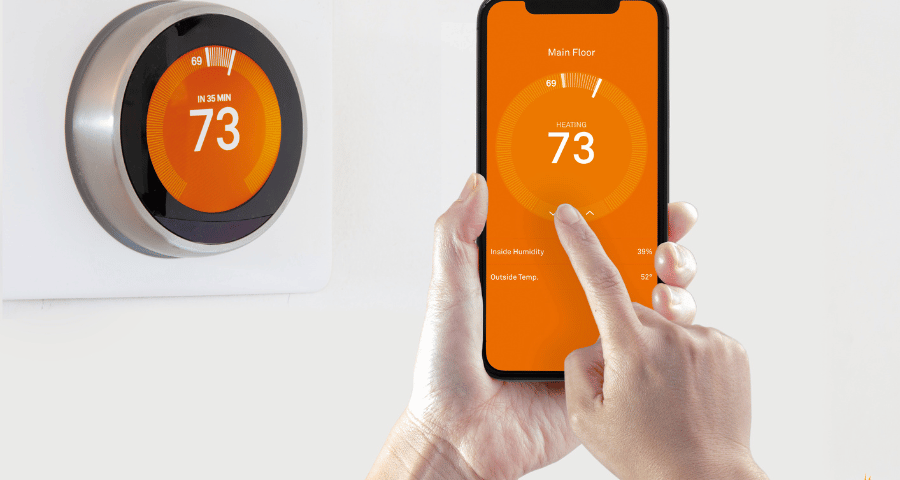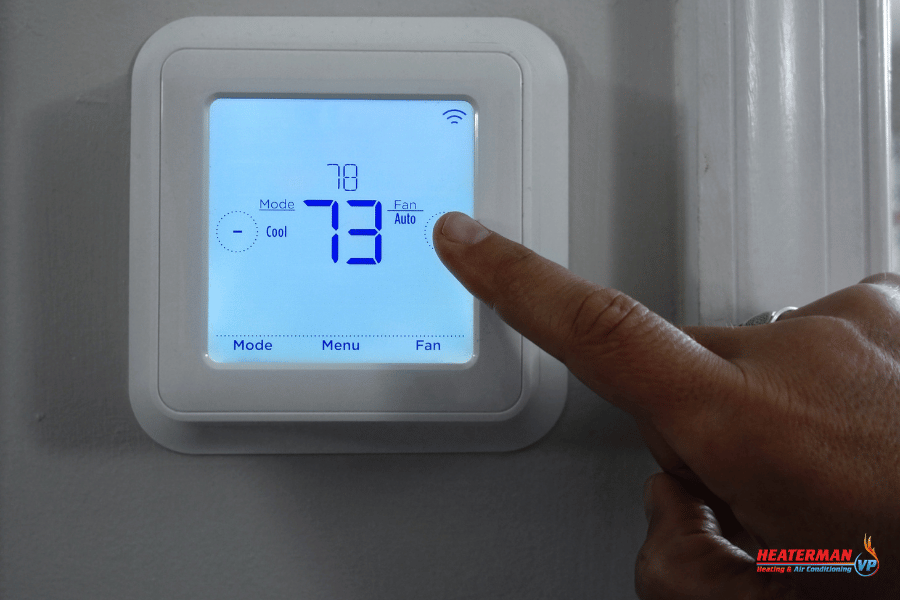
What Is Smart HVAC Technology? A Homeowner’s Guide to Smarter Climate Control
The HVAC industry has entered a new era. No longer limited to basic heating and cooling, today’s systems are evolving into intelligent, responsive networks that learn from your habits, respond to weather conditions in real-time, and optimize comfort with minimal input. This transformation is being driven by smart HVAC technology — a term that’s gaining traction across Suffolk County and beyond.
But what exactly does “smart” mean in this context? Is it just a trendy label for Wi-Fi thermostats, or something more? This comprehensive guide breaks down what smart HVAC technology is, how it works, and why it matters for today’s homeowners.
Defining Smart HVAC Technology
At its core, smart HVAC technology refers to systems that incorporate automation, connectivity, and data analytics to deliver more efficient and responsive heating, ventilation, and air conditioning.
Unlike traditional HVAC systems that operate on fixed schedules or manual controls, smart HVAC systems:
- Communicate with other smart devices in your home
- Collect and analyze data to improve performance
- Allow remote control via mobile apps or voice assistants
- Learn from user behavior to optimize comfort and efficiency
- Adjust settings based on real-time factors like weather or occupancy
In essence, these systems are designed to think, adapt, and optimize, rather than just run on command.
Key Components of Smart HVAC Systems
Smart HVAC setups can vary widely in complexity, but most include several core components working together:
1. Smart Thermostats
These are often the gateway into smart HVAC. Devices like Google Nest, ecobee, or Honeywell Home allow users to program schedules, control temperature remotely, and receive performance insights. Many also include motion sensors and weather tracking.
2. Connected HVAC Equipment
Furnaces, heat pumps, air conditioners, and air handlers can now be equipped with smart modules that communicate with your thermostat and cloud-based systems to fine-tune operation and report performance metrics.
3. Sensors and Monitors
Advanced systems use indoor air quality sensors, humidity monitors, room occupancy detectors, and temperature sensors across zones to make real-time adjustments.
4. Mobile Apps and Voice Integration
Homeowners can control smart HVAC systems through smartphone apps or smart home assistants like Amazon Alexa, Google Assistant, or Apple HomeKit.
5. Zoned Climate Control
Smart dampers and controllers divide your home into zones, allowing for customized temperature control in specific areas. This reduces energy waste and enhances comfort.
How Smart HVAC Technology Works
The real power of smart HVAC lies in data collection and automation. These systems continuously gather information such as:
- Indoor and outdoor temperatures
- User-set preferences and behavior
- Time of day and local weather forecasts
- Energy usage patterns
- Room occupancy levels
With this data, the system creates predictive models to optimize performance. For example, if your home typically warms up after 4 p.m. due to sun exposure, your system may reduce AC usage until later in the afternoon.
It’s not just reactive — it’s proactive, adjusting automatically to maximize comfort and efficiency with minimal human intervention.
The Benefits of Smart HVAC Technology
For homeowners in Suffolk County, the advantages of switching to smart HVAC technology are both immediate and long-term.
1. Improved Energy Efficiency
Smart HVAC systems can significantly lower your energy usage by reducing unnecessary heating or cooling. Learning algorithms and occupancy sensors help avoid wasteful operation when no one is home.
2. Lower Utility Bills
By optimizing performance, smart systems reduce monthly heating and cooling costs. Energy reports help homeowners spot patterns and adjust behaviors accordingly.
3. Enhanced Comfort
Smart systems provide more stable indoor temperatures by reacting to actual conditions rather than pre-set schedules. Zoned systems also allow different areas of your home to be heated or cooled independently.
4. Remote Access and Control
Whether you're at work, on vacation, or in another room, smart apps let you change temperature settings instantly. Forgot to lower the thermostat before leaving? Do it from your phone.
5. Maintenance Alerts and Diagnostics
Smart systems can alert you to clogged filters, abnormal system behavior, or required maintenance. This reduces the likelihood of breakdowns and allows for preventive care.
7. Integration with Smart Homes
These systems seamlessly integrate with other smart devices — from lighting and shades to security systems and voice assistants — creating a truly connected living experience.
Use Cases: Smart HVAC in Everyday Life
To understand the value of smart HVAC, it helps to consider real-life scenarios:
Case 1: Smart Adaptation
A homeowner sets their thermostat to 72°F, but smart sensors learn that the house feels too cold when it’s rainy and windy. The system adapts by warming the home slightly on damp days without the user having to lift a finger.
Case 2: Zoned Comfort
In a two-story home, the upstairs bedrooms often overheat while the downstairs remains chilly. A zoned system maintains 70°F upstairs and 68°F downstairs, creating a balanced environment without running the system at full blast.
Case 3: Vacation Mode
Heading out of town? A smart system detects the absence of occupants, reduces energy use automatically, and can be set to restore ideal comfort levels just before you return.
Case 4: Allergy Season Response
Smart indoor air quality monitors detect increased pollen and humidity levels. The HVAC system turns on air filtration and dehumidification modes to improve indoor air quality without manual activation.
Smart HVAC in Suffolk County: Local Considerations
Suffolk County presents unique conditions that make smart HVAC technology especially beneficial:
- Coastal Humidity: Smart systems equipped with humidity sensors can automatically manage moisture levels to prevent mold and maintain comfort.
- Temperature Swings: Spring and fall in Long Island often bring large day-to-night temperature swings. Smart thermostats adjust without constant user intervention.
- Energy Costs: Long Island energy rates are among the highest in the country. Smart HVAC systems help minimize unnecessary usage.
- Aging Housing Stock: Many Suffolk County homes were built decades ago and weren’t designed for efficient climate control. Smart zoning and adaptive control can help modernize comfort without full system replacements.
Potential Challenges and Limitations
As with any evolving technology, there are considerations to keep in mind:
- Upfront Cost: Smart thermostats and compatible systems can have a higher initial cost than basic models, though long-term savings often offset this.
- Connectivity Requirements: These systems rely on strong Wi-Fi signals. In homes with poor connectivity, performance may suffer.
- Learning Curve: There’s a brief period of adjustment as the system “learns” your habits, and homeowners must become comfortable using apps and dashboards.
- Compatibility Issues: Not all HVAC systems are compatible with smart technology out of the box. Older systems may require upgrades or retrofitting.
Despite these potential challenges, the benefits tend to outweigh the drawbacks for most homeowners — especially those invested in energy savings and long-term comfort.
The Future of Smart HVAC Technology
The field of smart HVAC is expanding rapidly. Innovations on the horizon include:
- AI-Driven Predictive Maintenance
Systems that not only detect problems but predict failures before they happen, based on thousands of data points. - Grid-Integrated HVAC Systems
Smart systems that respond to utility grid demands — reducing load during peak times and shifting energy use to cheaper off-peak hours. - Deeper Smart Home Integration
Expect HVAC to be part of larger smart ecosystems that include solar panels, EV charging stations, and even weather-driven home automation.
As these advancements continue, HVAC systems will become less like appliances and more like intelligent partners in home management.
Conclusion
Smart HVAC technology represents more than just convenience — it’s a shift toward intelligent, efficient, and responsive climate control that adapts to how we live. For Suffolk County homeowners navigating rising energy costs, variable weather, and evolving lifestyle demands, the appeal is clear.
Understanding the components, capabilities, and benefits of smart HVAC systems is the first step toward embracing a future where comfort and efficiency go hand-in-hand — guided by technology that learns, adapts, and improves over time.
Smart doesn’t mean immune to breakdowns.
If your system malfunctions or stops responding, our Emergency HVAC Services in Suffolk County team is available 24/7 to troubleshoot smart thermostats, sensors, and HVAC controls quickly and effectively.




